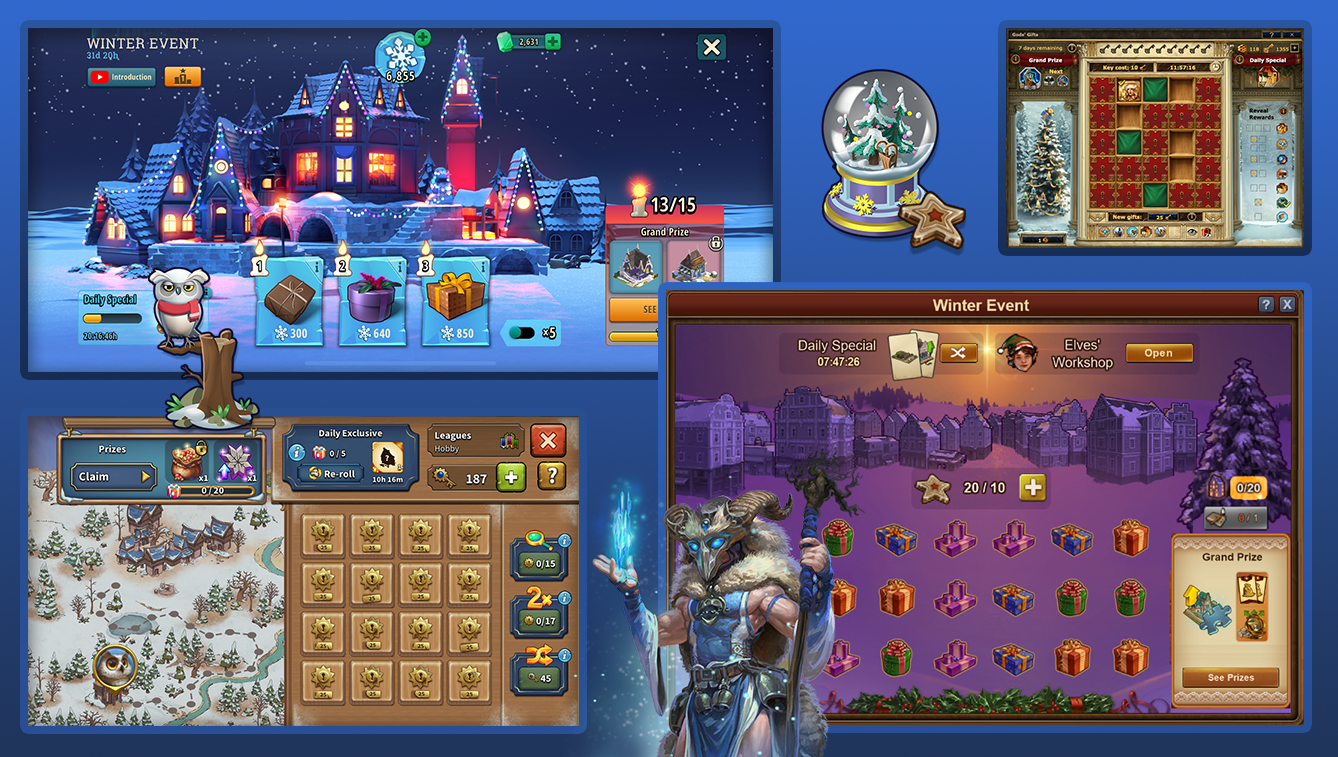In today’s landscape of free-to-play gaming, in-game events have become a crucial source for success and player satisfaction. Developers are facing the challenge of maintaining player ́s interest and ensuring the longevity of their games.
Events play a multifaced role when it comes to balancing engagement, monetization, and community dynamics with precision.
Join us as we unpack the reasons of why events have become indispensable in keeping the free-to-play market thriving.
First up, events sustain the players engagement by introducing fresh
challenges and experiences. This helps maintain player interest, ensuring a consistently stimulating and engaging environment within the game.
By featuring unique items or bonuses, that are only available during the events, we can
encourage the player to purchase those. This approach contributes to an increase in the games’ financial performance.
We can motivate players to engage with the game consistently through events being timed. Events are especially important to players who the end of content and are waiting for the next content update. They have a reason again to log in regularly to participate and gain rewards, therefore impacting the retention of those player base positively.
Encouraging competitive plays by for example adding leagues like in Forge of Empires, you can motivate the players to play the game consistently, because the higher the league, the better the reward. Also, players often feel a greater sense of accomplishment and progression as they compete and win against others.
Additionally, events foster cooperation between players: As events tend to be played by most players as event-exclusive rewards are to be won, events are an easy topic to chat about with almost every player. Typically, guild members are discussing an event or exchange tricks that help to progress faster or efficiently. Or they share their event progress, cheering for each other and praising successes. Genuine human connections are building up, helping immensely with player retention.
Finally, events serve as a source for developers to gather players feedback and insight about players’ preferences. Balancing an event for the whole player base isn’t easy, as every player type has different expectations on the difficulty and time investment necessary to complete the event. Therefore, events bring valuable insights that can be used for not only new events or iterations of past events, but for future updates and enhancements within the game, too.
As you can see above, in-game events not only benefit developers. They provide the opportunity to sustain player engagement, both emotionally and financially, and ensuring a steady revenue flow.
– Anna Sunderbrink –

